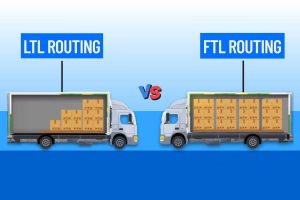A mortgage broker will help you search through the various opportunities available on the Australian home loan market, whether you’re a first-time buyer, investing, downsizing, or refinancing your current mortgage. Mortgage broking is a service that can provide you with facts upfront to help you make the best financial decisions possible.
But before you agree to a loan or commit to a mortgage broker, there are a few questions you should always ask a mortgage broker before hiring them to ensure they can secure a competitive home loan for you.
Since loans tend to be decade long commitments, the following years of your life will hinge on the decisions you make. If you don’t like the answers you get for a mortgage broker, keep looking until you find a mortgage broker that you trust wholeheartedly.
Remember, the more information you provide to your broker, the more advice, support, and factual information they can deliver. You should not hesitate when sharing sensitive information with your mortgage broker; if you do hesitate, this is a sign you should find another broker.
- How Much Experience Do You Have as a Mortgage Broker?
Don’t be afraid to ask mortgage brokers tough questions like how long they’ve been in business, as this will give you an idea of their abilities and experience. You can use ASIC’s online tool to see if a broker is professionally licenced. Since a mortgage broker will make key financial decisions on your behalf, it’s critical that they’re legally qualified to do so.
- How Many Lenders Do You Work With?
A mortgage broker works with multiple lenders in order to find the best mortgage rate for your specific financial and personal circumstances. Knowing which and how many lenders a mortgage broker represents will give you a clearer idea of the scope of options this mortgage broker can provide.
Of course, if you are dissatisfied with the broker’s options, you have can easily switch to another mortgage broker who might have better relationships with additional lenders.
- What Documents Do I Need for My Home Loan Application?
Throughout a loan application process, it is common that missing documents cause incidents of settlement delays, particularly as there are large amounts of paperwork to sign and submit. To ensure a smooth application process, your mortgage broker should give you a list of all the paperwork you will need to gather and sign, not only for the mortgage but for the whole purchase process.
- How Do I Secure a Loan?
It’s critical to be prepared for the various stages involved with securing a loan and then using the loan to purchase a property, as well as the legal and regulatory actions that must be followed. This knowledge will help you get a better grasp on your ongoing contractual obligations and how to get ahead of other buyers’ best, especially as there is a lot of competition in the property market.
- How Much Will My Deposit Be?
The most common down payment or deposit required on a home loan is 20%, but that’s not always the case. Finding out how much your deposit will be on a home loan as soon as possible is crucial because it will enable you to estimate how long it will take to save for the full amount and help you implement a proactive saving strategy.
- What Are the Different Rates for Home Loans?
Fixed-rate, variable-rate, interest-only and low-doc loans are just a handful of the many interest rate concepts you should be acquainted with. There is also a guarantor premium if you don’t want to pay Lender’s Mortgage Insurance (LMI), as well as a ‘honeymoon’ rate for first-time borrowers. It’s crucial to understand the differences between each rate because they’ll affect your monthly payments and the overall amount of your loan. To stay informed and compare your options, check the current home loan interest rates for a better understanding of what might suit your financial needs.
- What Other Fees Will I Incur as Part of My Home Loan?
The overall debt amount, the interest rate, and the monthly repayments are the first three fees you should pay attention to. However, there are other fees that borrowers may not be aware of at first. Examples of these added costs include payment fees, assessment fees, conveyancing fees, delivery fees, government fees such as stamp duty, Lender’s Mortgage Insurance (LMI), lender account management rates, transferring fees, and other continuing account fees.
- Is Refinancing a Future Possibility?
In an environment where both your personal circumstances and the market will often go through uncontrollable changes, it’s critical to prepare ahead. If you find a better home loan plan or can’t keep up with your existing payments, you can refinance your loan; in other words, turn to a new lender and their home loan packages. It’s beneficial to become aware of the refinancing process early on so that you can be prepared if the situation arises.
- What’s the Benefit of Consolidating my Loans?
Getting a loan consolidation can be helpful and save you money, but only if you understand when you can benefit from it and when a loan consolidation is irresponsible. Loan consolidations combine all of your debts, including credit cards, personal loans, and mortgages, into a single loan. However, there are a few things to consider before doing so, a mortgage broker will clarify the benefits and drawbacks of such a deal tailored to your financial position.
- Which Type of Loan is Right for Me?
Even though mortgage brokers are specialists in their profession, you must be confident and satisfied with the loan they have suggested as the borrower. You must also consider the advantages, drawbacks, and risks involved in taking out that specific loan.
Ask the broker to clarify why they think the loan is the right fit for your interests and financial situation. It might also be a good idea to ask them to point out any situations that the loan may not be right for you and be honest with your own thoughts and reservations about the loan.
To find and leverage a competitive home-loan offer, a broker and borrower should preferably work together constructively and transparently. As a borrower, asking the correct questions will only help you maintain financial stability and leverage your mortgage.
Getting first-hand tips and feedback from a Professional Mortgage Broker will also help you avoid any misunderstanding, unforeseen costs and make the journey to buying your first home or investment home smooth.












